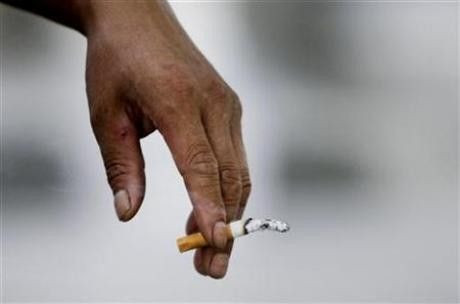Give Up Smoking Now Can Reverse Lung Damage
KEY POINTS
- >34.2 million American adults aged 18 and above are currently cigarette smoking
- About 80-90% of lung cancer deaths are associated with cigarette smoking
- A new study reported that quitting smoking can reverse lung damage
For decades, several advertisements, including those on cigarette packets, have been warning smokers about the risk of developing ailments including lung cancers. For those of you who have been smoking for a long time and worried about your health, a new study suggested that giving up the habit can reverse lung damage.
The researchers from the Wellcome Sanger Institute reported that, when smokers quit the habit, their risk of developing lung cancer will fall. They opined that new healthy cells are produced in the lungs to replace some of the tobacco-damaged and cancer-prone cells as soon as one kicks their habit of smoking.
The results of the study offered new hope to smokers who wish to quit. The study documented that not only will quitters have reduced the risk of developing lung cancer but also prevent the development of new damages to the body.
People who have been smoking for several decades are under the impression that it might be too late for them to give up the habit as the damage has already been done. But, this study pointed out just the opposite: that it is never too late to give up smoking.
“Some of the people in the study had smoked more than 15,000 packs of cigarettes in their life. But within a few years of quitting, many of the cells lining their airways showed no evidence of damage from tobacco," The Strait Times quoted the study’s senior author Dr. Peter Campbell.
The research team examined biopsies of 16 individuals including former smokers, current smokers and those who have never smoked. Mutations can occur in several cells as a part of the ageing process. But, when a mutation occurs in the wrong gene located in the wrong cell can cause cancer. When such cancerous cells accumulate, they can develop into full-blown cancer.
The researchers found that nine out of ten lung cells in individuals who smoke currently had those dangerous cancer-causing mutations. For non-smokers, they found that many damaged cells had been replaced by healthy new ones. And among ex-smokers, they found that 40% of the lung cells were healthy.
Although the exact mechanism of the replacement of damaged lung cells remains unclear, the authors believe that there may be a sort of reservoir of cells that could enable this phenomenon. They urged people to quit smoking immediately to make your life safer.

© Copyright IBTimes 2024. All rights reserved.






















